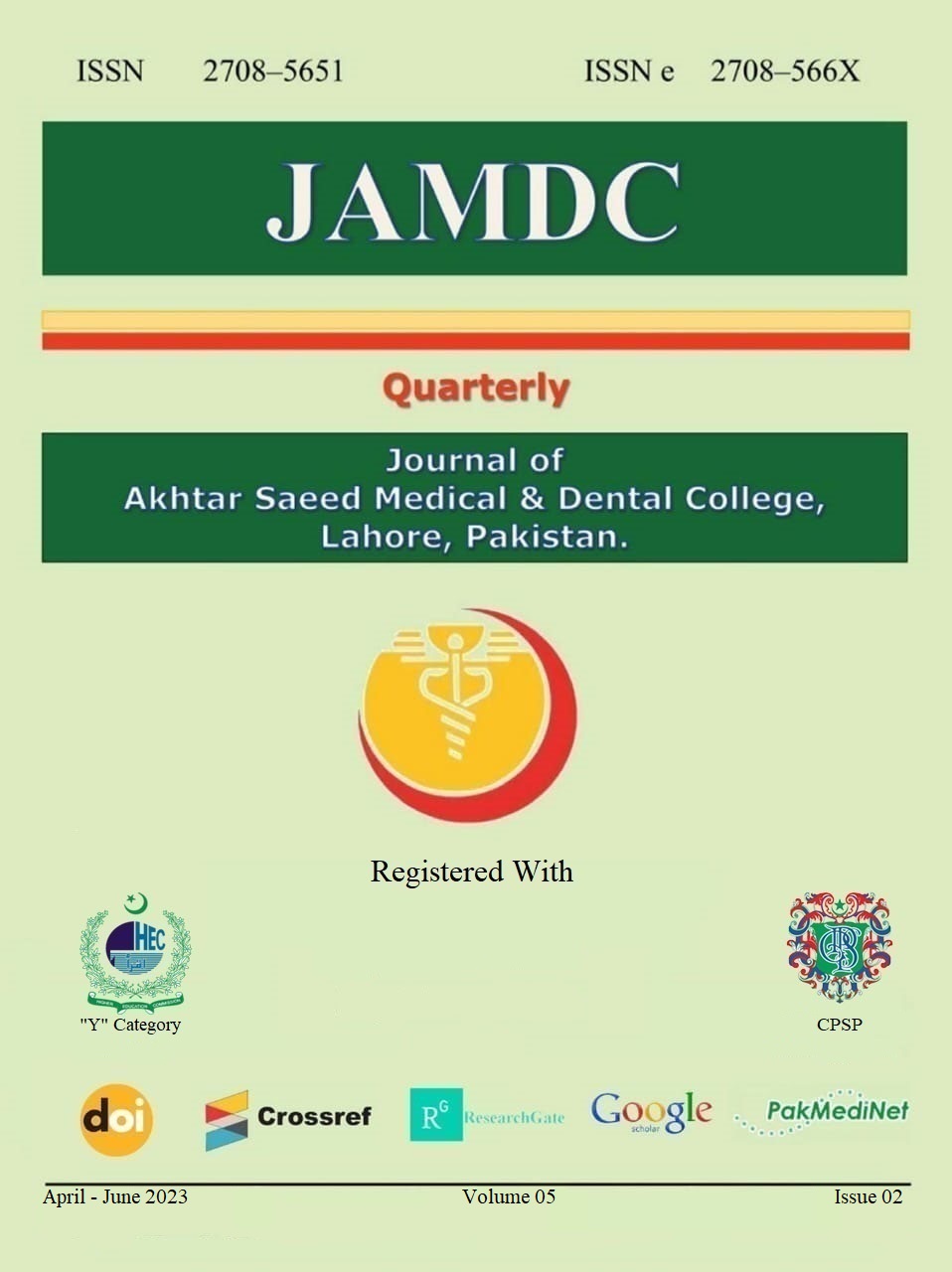KNOWLEDGE AND PRACTICES OF MOTHERS REGARDING INTEGRATED MANAGEMENT OF NEONATAL AND CHILDHOOD ILLNESS COMMUNITY COMPONENT IN THE PERI URBAN AREA OF LAHORE
Main Article Content
Abstract
Background: The Integrated Management of Childhood Illness (IMCI) strategy was created in 1992 by the World Health Organization (WHO) and the United Nations Children’s Emergency Fund (UNICEF) to address the five major causes of child mortality: diarrhoea, pneumonia, malaria, measles and malnutrition. Its community component (IMCI-C) focuses on important health practices within households and communities for child survival. The current study aimed to assess the knowledge and practices of IMCI-C among mothers in a peri-urban area of Lahore, Pakistan.
Material and Methods:
A cross-sectional study was conducted in Shah di Khoi, Johor Town, Lahore involving 1250 mothers’ of 2932 children under the age of five; 180 mothers were selected using systematic random sampling. Information about the mothers' sociodemographic characteristics, knowledge and practices related to IMCI-C was collected. The data were analysed using SPSS version 21. The frequency percentages for outcome variables of overall knowledge and practices of IMCI-C were calculated; the chi-square test was applied for statistical significance with a p-value ≤ 0.05.
Results:
Overall knowledge and practices of mothers regarding IMCI-C were 91.1% and 95% respectively, with a significant association between the age of the child and the mother's knowledge regarding IMCI-C ( χ 2 =7.935, p-value=0.019). No statistical significance of age, education, occupation income of mothers and their knowledge and practice of C-IMNCI was observed.
Conclusion:
A high level of knowledge and practices was reported among the mothers highlighting a good literacy rate (73%) and the role of lady health workers in promoting the health of children under five

